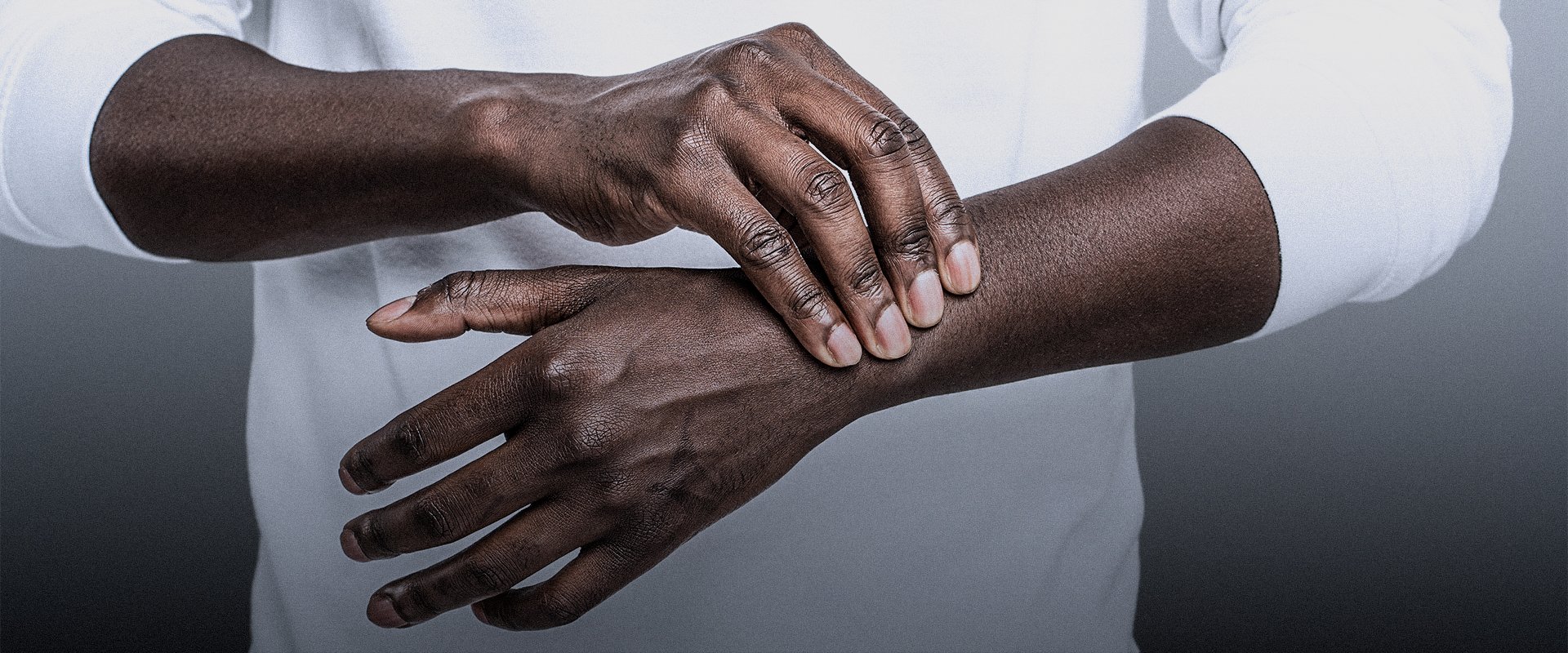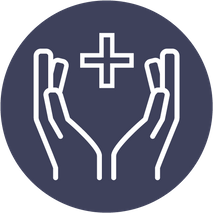
Physical Therapy for CRPS
AT EVOLVE
Physical Therapy for CRPS
HOW CAN PHYSICAL THERAPY HELP TREAT COMPLEX REGIONAL PAIN SYNDROME?
Complex Regional Pain Syndrome, also known as CRPS, is a condition that is characterized by excess and prolonged pain and inflammation that can occur after a serious or even benign injury. Though researchers are still searching for an answer as to why CRPS occurs, physical therapists play an important role in helping to manage symptoms of CRPS and improve function of the affected body part.
WHAT DOES PHYSICAL THERAPY FOR CRPS LOOK LIKE?
We will begin with an initial evaluation to better understand the pattern of symptoms you are experiencing as well as your goals and needs. We will ask about the initial injury and steps that were taken to heal the injury. We will also ask you about the activities within your life that are being impacted by these symptoms as well as about your general level of activity and your beliefs and feelings about the pain you are experiencing. We can then develop an individualized treatment plan based on your needs and the best evidenced-based techniques for the management of CRPS. A multimodal approach which includes pain education, nervous system retraining and reintroduction to movement is utilized to treat CRPS.
WHAT IS CRPS?
CRPS is a neurologic condition characterized by prolonged and excessive pain in an area of the body that was previously injured. Sometimes the initial injury is more severe, such as a broken bone, while other times it could be a very minor injury. The pain caused by CRPS is out of proportion with the level of tissue injury existing at the moment and persists even after the original injury is healed. CRPS can occur anywhere in the body but is most common in the hand, arm, foot and leg. Common symptoms of CRPS include:
- Changes in skin temperature and skin color near the involved site
- Swelling near the involved site
- Pain that is unprovoked or spontaneous and that can worsen with activity and improve with rest. It can also spread to a larger area of the limb over time
- Symptoms that may be described at burning, pins and needles or squeezing in the area
- Changes in skin texture
- Alterations in nail and hair growth in the area
- Changes in sweating patterns in the area
- Stiffness, loss of strength and muscle wasting in the involved site
The outcomes of CRPS are highly variable and many individuals can experience frustration while looking for a solution to their symptoms. Most cases are mild and resolve over the course of a few months to years as the involved nerve continues to heal, but for those with a more severe case, a multimodal approach is often needed to manage symptoms and improve function. One of the most important factors to promote recovery from CRPS is addressing lifestyle and health factors that impair nerve health like smoking, nutrition, and diabetes. In addition to managing health factors, working with a knowledgeable physical therapist is an important tool as well. Call to Schedule a Consultation! 1-718-258-3300
End Injury Progression
Physical therapy for CRPS has proven to prevent injury, slow and even stop pain issues, improve performance, and reverse injury progression in many cases.
Relieve Pain
The movements used in this technique can target your entire body helping you to manage discomfort and pain during the course of your physical therapy treatments.
Improve Range of Motion
Posture awareness is an important area to focus on due to the fact that certain positions may cause you further discomfort and pain.
Restore Mobility
You can regain mobility and flexibility by taking part in the stretches and exercises as prescribed by your physical therapist.
How Long Will Physical Therapy for CRPS Last?
If you decide to work with a physical therapist to help with CRPS related issues, your entire treatment plan could consist of around 8-20+ different physical therapy sessions that will each last 60-90 minutes. Once you complete your customized physical therapy treatment plan, you will be able to continue to do the prescribed stretches and exercises utilized during your PT sessions yet in the comfort of your own home.
PHYSICAL THERAPY INTERVENTIONS FOR CRPS
As mentioned above, treating CRPS involves a multimodal approach and your physical therapist will address several key areas like those listed below, to help improve your symptoms and your level of function:
- Perception and understanding of pain
- Changes in the sensory and motor cortices of the brain
- Impairments in functional activities that require use of the involved body area
- Strength, coordination and range of motion in the involved area
Pain science education: Under normal circumstances, the sensation of pain is intended to alert you about tissue injury. In cases of chronic pain or painful conditions like CRPS, the body is experiencing pain even though the tissue injury has healed. This type of pain can have profound effects on mental and physical health and create a fear of movement. PTs help educate their patients on the science of pain to help ease their fears and allow them to begin moving normally again.
Graded Motor Imagery, Laterality Training and Mirror Box Therapy: Graded motor imagery provides a way to introduce more comfortable and pain-free movement in the setting of CRPS. When movement is imagined, the motor cortex will activate in the same way it does in response to actual movement but it does so without pain. By providing the brain with a chance to activate these areas without the coupled experience of pain and discomfort, we can help desensitize the nervous system and retrain more normal movements. Laterality training involves looking at a series of images of the involved area to determine which is a right and left limb, for example. This skill becomes impaired in many cases of CRPS likely due to the reorganization of the brain cortices and these activities help to reverse this. Finally, mirror box therapy which is carried out by placing the painful limb inside a mirrored box, can also help to reorganize the brain and lessen pain.
Range of motion, manual therapy and strength training: Disuse, pain and changes in localized nerve function can result in joint stiffness, muscle weakness and atrophy. Physical therapy aims to find tolerable ways to incorporate hands-on-manual techniques, range of motion and stretching and strengthening exercises to combat these symptoms.
Functional activities and movement retraining: gradually reintroducing comfortable movements and functional activities is a main goal of rehabilitation for CRPS. It will begin with simple activities that may be affected and work toward bigger and more complex movements that are required for every day function.
Living with CRPS can be overwhelming but a knowledgeable physical therapist can help guide you through the journey of lessening your symptoms and improving the function of the involved body area. If you are dealing with CRPS, call Evolve today to learn more about how we can help. Call to Schedule a Consultation! 1-718-258-3300
Mill Basin (located in Harbor Fitness)
6161 Strickland Ave
Brooklyn, NY 11234
Monday: 7am-8pm
Tuesday: 7am-8pm
Wednesday: 8am-5pm
Thursday: 7am-8pm
Friday: 8am-1pm
Park Slope (located in Harbor Fitness)
550 5th Ave.
Brooklyn, NY 11215
Monday: 9am-8pm
Tuesday: 8am-6pm
Wednesday: 9am-8pm
Thursday: 8am-6pm
Friday: 8am-3pm
Gravesend
372 Avenue U
Brooklyn, NY 11223
Monday-Thursday: 8am-8pm
Friday: 8am-3pm
Ready to take the next step to a healthier you?
Contact Us Today!
PHYSICAL THERAPY FOR CRPS
Need physical therapy for CRPS?
Let our caring and compassionate physical therapists help you with relieving pain while getting you back on your feet comfortably.
Call now to schedule your first PT consultation!
Call: 1-718-258-3300







